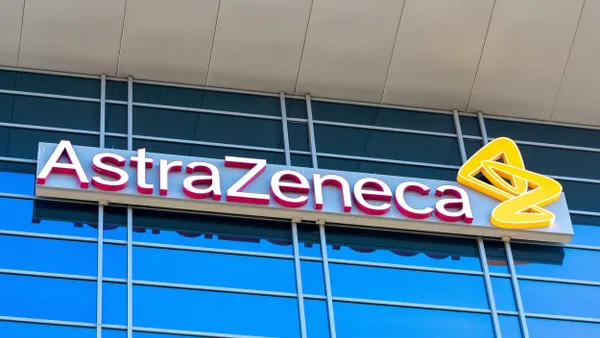Today, a brief rundown of news involving Novo Nordisk and Pepgen, as well as updates from Neurocrine Biosciences, Checkpoint Therapeutics and Galderma that you may have missed.
Novo Nordisk will spend 8.5 billion kroner, or about $1.2 billion, to build a new production facility in Odense, Denmark, the first new factory in its home country this century, the company said Monday. The 431,000-square-foot plant and warehouse will support multiple types of rare disease medicines and, when open in 2027, create 400 permanent jobs. The announcement coincided with news Novo’s controlling shareholder, Novo Holdings, has been cleared by the Federal Trade Commission to acquire contract manufacturer Catalent, which will give the drugmaker three more manufacturing facilities. — Jonathan Gardner
The Food and Drug Administration has suspended an request by Pepgen to start dosing U.S. patients with an experimental drug it’s developing for Duchenne muscular dystrophy, the company said Monday. Pepgen didn’t explain what precipitated the FDA’s hold, but the agency will provide the company with an official letter within 30 days. The Phase 2 trial is already underway in the U.K. and will test multiple doses of the drug, called PGN-EDO51. An open-label trial in Canada will continue as planned, the company said. — Jonathan Gardner
Atea Pharmaceuticals said on Monday it has hired investment bank Evercore to identify ways to “enhance shareholder value.” One such opportunity could be through a “strategic partnership” involving a hepatitis C drug that succeeded in Phase 2 testing earlier this month. Atea has lost most of its market value since going public in a $300 million initial public offering in late 2020. It also rejected an unsolicited bid from Concentra Biosciences last year, claiming the offer undervalued the company. — Delilah Alvarado
The FDA on Friday approved Neurocrine Bioscience’s Crenessity for people with a rare genetic disease called classic congenital adrenal hyperplasia, or CAH. Crenessity is approved for use as an adjunct therapy alongside use of glucocorticoids in people with CAH, a condition that alters the production of adrenal steroid hormones. Testing showed it helped patients lower levels of steroid treatment, which can cause side effects and health complications. The drug will be commercially available in a week, Neurocrine said. — Delilah Alvarado
Checkpoint Therapeutics on Friday won FDA approval for its immunotherapy Unloxcyt in people whose cutaneous squamous cell carcinoma has spread or can’t be treated with surgery or radiation. The company estimates the market opportunity for the disease, the second-most-common form of skin cancer, could be worth $1 billion a year and claims Unloxcyt offers a “differentiated treatment option” to Merck & Co.’s immunotherapy Keytruda. There are about 40,000 cases, and 15,000 deaths, from advanced cutaneous squamous cell carcinoma in the U.S. each year, according to Checkpoint. — Jonathan Gardner
The FDA on Friday also cleared Nemluvio, a new eczema treatment from Switzerland-based biotechnology company Galderma. Nemluvio is approved for people 12 or older whose moderate-to-severe atopic dermatitis can’t be controlled with other topical prescription therapies. It’s meant to be used alongside steroids or so-called calcineurin inhibitors. Galderma’s drug is already available to treat another skin condition called prurigo nodularis. The company expects peak annual sales to surpass $2 billion. — Delilah Alvarado














